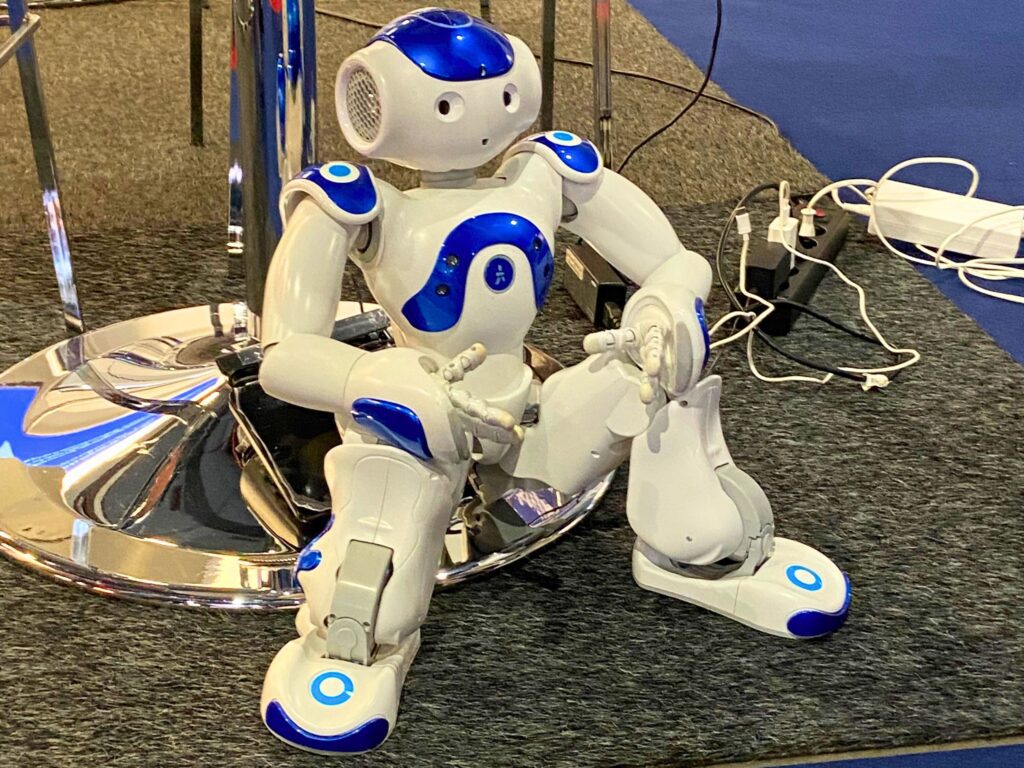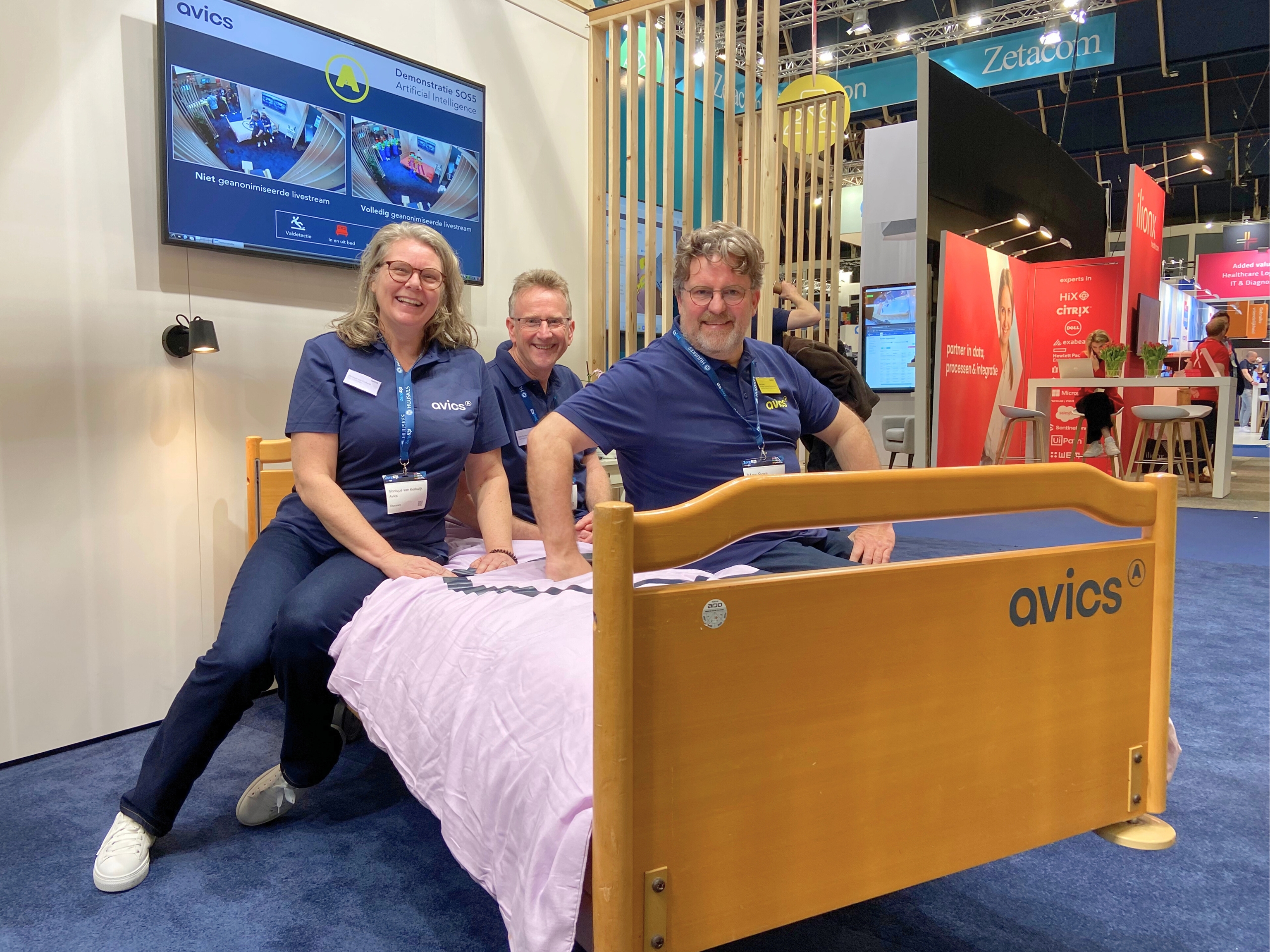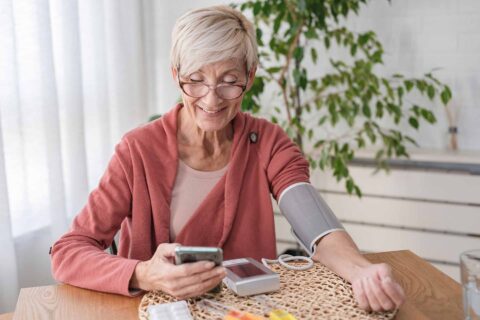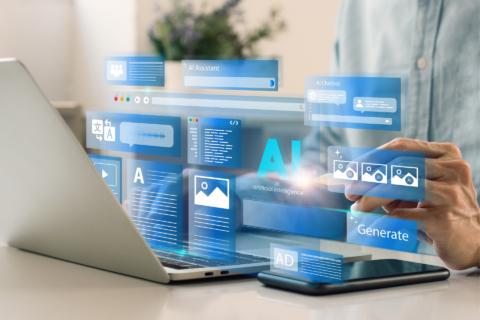More job satisfaction for professionals and life happiness for clients. That's at the heart of many of the digital applications at the Care & ict event 2024, according to a tour of the show floor.
Social robots
Care robots have traditionally been among the biggest eye-catchers at Care & ict. This year, too, the small dancing robots from Robots in Care and Rivor Adult Education are attracting a lot of attention. "Robots have long since ceased to be seen as a threat," notes director Adrie Pol of Rivor Adult Education. "Whereas before we were still afraid they would take our jobs, now we really see them as a tool. In fact, we are now getting the question of how they can be used in healthcare, how they can help take care of things."
But now healthcare professionals have yet to learn how to work with them. That is why Robots in Care and Rivor Adult Education have entered into what they say is a unique collaboration. They are training care workers to work with social robots. "We explain how to make the best use of the robot and at what time you can best use the robot, for which patients a social robot is suitable and how a robot improves a patient's quality of life," Pol explains. "We pick up the demand from healthcare organizations and tailor the education accordingly."
From movement exercises, quizzes to rehabilitation. Robots in Care's social robots have already been deployed in hospitals, nursing and care homes as well as in home care since 2021, says Luka van Gemert of Robots in Care. "Already more than a hundred clients have a small robot in their home that helps them with their daily routine. They help with counseling people with a condition, serve as companion robots for lonely elderly people and invite people with dementia to exercise. We believe that social robots will increasingly become part of everyday life."

MyIBDcoach
Sananet is presenting at Zorg & ict one of its latest digital coaches, which it has developed in collaboration with the mijnCOACH.nl Foundation. MijnIBDcoach is a secure and personalized tool for people with Crohn's disease or ulcerative colitis. The tool helps patients learn more about their disease and at the same time aids in treatment. Physicians can review and interpret readings.
Healthcare professionals work with their patients using the coach, explains Sananet developer Maarten Pieters. "This gives the practitioner insight into what it's like to live with IBD. In addition, this remote contact saves time. We do everything possible to keep the complaints as low as possible. For example, the patient has to come to the hospital less often. We also link more and more devices at home to our Sanacoaches, such as a thermometer or scale. All the coaches are developed with doctors and nurses, so we can be sure it works in practice."
More direction for clients
A large colorful planning board welcomes visitors to the MijnEigenPlan booth . Which social worker is working today? What activities are scheduled? What is the weather doing today? What are we eating today? People with disabilities also need basic information that for most people can just be found on their phones.
MijnEigenPlan's digital information board enables people with disabilities to do more themselves. With an accessible and colorful portal, digital information boards and a handy app, they get a better overview of what happens in a day. "By encouraging self-reliance and self-direction, we want to increase the self-confidence of clients in disability care," explains Laura Bouwmann of MijnEigenPlan. "This ensures more quality of life for the client, and less workload for the supervisors. In addition to disability care, demand is also growing from the mental health sector for MijnEigenPlan, Bouwmann said.
Job satisfaction
Greater job satisfaction among healthcare professionals and greater client happiness in life are also central to the Artificial Intelligence (AI) applications Avics offers for senior care. Thanks to sensors, the Avics Connect&Care provides a secure and reliable environment for handling care calls and sharing other care information.
Thanks to AI, professionals can better anticipate client behavior and better see whether care is needed or not. Max Smit, manager of business development shows the anonymized camera images at the fair, in which clients are shown as sticky figures. "We focus on the living happiness of the residents. Demented people find it very annoying when many care workers come into their rooms. They then no longer know who they are. Thanks to the platform, we can now see more quickly whether care is needed or not. We want to reduce the number of alarms with this. Care professionals no longer have to walk their rounds and check the rooms. Now we let the clients sleep."
Avics has been providing this elderly care for 20 years, but AI offers unprecedented opportunities, says Monique van Kerkwijk, process manager. "Thanks to AI, we can learn behavior. We can predict whether someone is deteriorating. If someone goes to the toilet often, for example, that is an indication of bladder infection. If someone is walking slower and slower, that's an indication of something else. You can see agitation in the patient coming. By simple actions such as offering food and drink, you can prevent it."
Gaming: good for healthcare professionals
That gaming is good for healthcare professionals may not yet be known to everyone. Yet that is the message that Steven Dekker and Chris Slotboom's young company Gaming@Work shares at Zorg & ict. "Gaming can be a valuable tool in employee development," Slotboom says. "It helps with better hand-eye coordination, depth and color recognition and concentration skills. It teaches cognition, communication skills, leadership and other skills that also come in handy in everyday life."
With 10 million gamers in the Netherlands, 80 percent of whom are over the age of eighteen, there is a good chance that gamers work in healthcare facilities as well, Slotboom believes. "That's why we really focus on employees and healthcare institutions. We want to use gaming to contribute to major challenges in healthcare, such as staff shortages, high turnover and the need for training in new technologies. To that end, we developed our method Game Ready Check. To enable gaming anywhere, Dekker and Slotboom launched their Gaming on Wheels today on the first day of the fair. A so-called agnostic computer case on wheels, which fits any kind of hardware, and works with cloud gaming.












